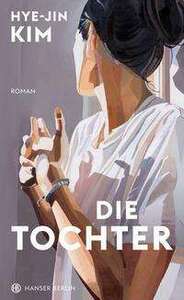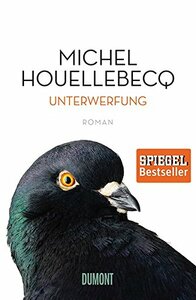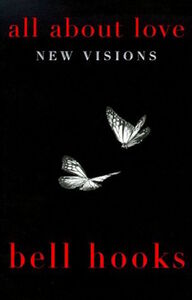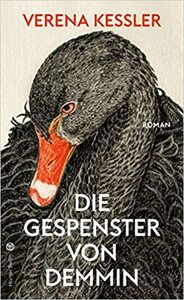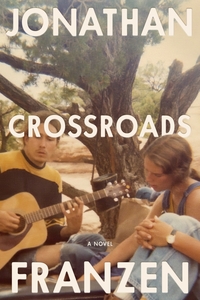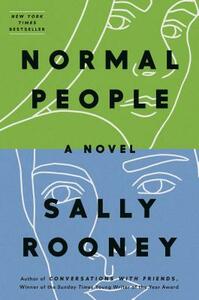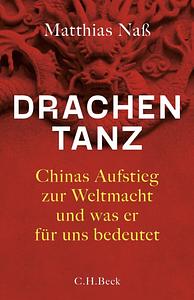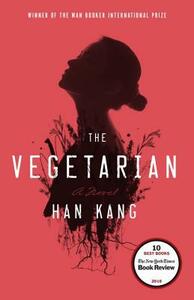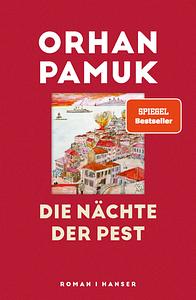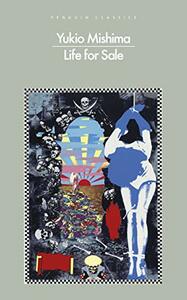Take a photo of a barcode or cover
pascalthehoff's reviews
404 reviews
Irritation gleich auf der ersten Seite: Die Ich-Erzählerin spricht von ihrer Tochter? Moment. Dieser Roman ist NICHT wie tausend andere aus der Perspektive der homosexuellen Tochter geschrieben, sondern aus der der erzkonservativen Mutter!? Wild!
Der konstante, transparente innere Monolog der Mutter ist es, was "Die Tochter" von vielen anderen Geschichten abhebt, in denen intolerante Eltern mit der Homosexualität ihrer Kinder kämpfen. Bei so viel Transparenz erfordert auch der Sinneswandel zu allmählicher Toleranz, der im dramaturgischen Bogen solcher Geschichten auf zehn Meilen vorhersehbar ist, viel Fingerspitzengefühl.
Würde sich "Die Tochter" nur auf das Mutter-Tochter-Verhältnis stützen, wer weiß, ob das so gut funktioniert hätte? Der sekundäre Erzählstrang über den Alltag der Mutter als Altenpflegerin jedoch beschreibt eine Arbeit, in deren menschenverachtendem, profitorientiertem Umfeld die konformistisch veranlagte Mutter sich ganz eigenständig auf natürliche Weise in ihrem eigenen Kosmos radikalisiert. Der Steinwurf, dieses Öffnen im Denken auch auf andere innere Konflikte zu übertragen... Nun, auch an dieser Front macht "Die Tochter" es sich nicht ZU einfach.
Genau dieser Wille, nicht unbedingt den einfachsten Weg zu gehen und auf schwarz-weiße Alles-oder-Nichts-Antworten zu verzichten, macht den Roman so hervorragend.
Zum Schluss noch der obligatorische Rant über deutsche Buchtitel: Die Tochter? Wirklich? Soll im Regal wohl besser neben die tausenden deutschen Krimi- und Thriller-Übersetzungen mit Ein-Wort-Titeln passen. Die englische Übersetzung heißt "Concerning my Daughter" und ist damit quasi eine wörtliche Übersetzung des Originaltitels, die auch viel besser zum Inhalt des Romans passt.
Der konstante, transparente innere Monolog der Mutter ist es, was "Die Tochter" von vielen anderen Geschichten abhebt, in denen intolerante Eltern mit der Homosexualität ihrer Kinder kämpfen. Bei so viel Transparenz erfordert auch der Sinneswandel zu allmählicher Toleranz, der im dramaturgischen Bogen solcher Geschichten auf zehn Meilen vorhersehbar ist, viel Fingerspitzengefühl.
Würde sich "Die Tochter" nur auf das Mutter-Tochter-Verhältnis stützen, wer weiß, ob das so gut funktioniert hätte? Der sekundäre Erzählstrang über den Alltag der Mutter als Altenpflegerin jedoch beschreibt eine Arbeit, in deren menschenverachtendem, profitorientiertem Umfeld die konformistisch veranlagte Mutter sich ganz eigenständig auf natürliche Weise in ihrem eigenen Kosmos radikalisiert. Der Steinwurf, dieses Öffnen im Denken auch auf andere innere Konflikte zu übertragen... Nun, auch an dieser Front macht "Die Tochter" es sich nicht ZU einfach.
Genau dieser Wille, nicht unbedingt den einfachsten Weg zu gehen und auf schwarz-weiße Alles-oder-Nichts-Antworten zu verzichten, macht den Roman so hervorragend.
Zum Schluss noch der obligatorische Rant über deutsche Buchtitel: Die Tochter? Wirklich? Soll im Regal wohl besser neben die tausenden deutschen Krimi- und Thriller-Übersetzungen mit Ein-Wort-Titeln passen. Die englische Übersetzung heißt "Concerning my Daughter" und ist damit quasi eine wörtliche Übersetzung des Originaltitels, die auch viel besser zum Inhalt des Romans passt.
Well, this was kind of one-note and all over the place at the same time. But in a good way?
First of all, I'm all for well-written unlikeable protagonists. I even have a soft spot for weird, rambling, egocentric, middle-aged, pseudo-intellectual sex addicts – a soft spot that is shrinking every time I have to endure this – by now – very distinct and well-trodden trope.
For all his eloquence, and the few very distinct perspectives this Bateman-esque protagonist added to the satire (being a belle époque scholar as well as an old-school chauvinist who benefits from certain muslim cultural values), his very "strongly defined" nature inadvertently veers the entire satirical concept into a more subjective, less multi-faceted direction. There is, of course, value in that, as well. And the novel definitely nails this approach.
While I still wonder how the concept muslim-led France could have turned out with a novel that tackles the political upheaval from multiple perspectives, especially towards the end of the novel, I've learned to appreciate the very distinct character of the novel. Like it or not – it's impressive how many often ambivalent implications the novel still manages to elicit from its relatively narrow perspective.
First of all, I'm all for well-written unlikeable protagonists. I even have a soft spot for weird, rambling, egocentric, middle-aged, pseudo-intellectual sex addicts – a soft spot that is shrinking every time I have to endure this – by now – very distinct and well-trodden trope.
For all his eloquence, and the few very distinct perspectives this Bateman-esque protagonist added to the satire (being a belle époque scholar as well as an old-school chauvinist who benefits from certain muslim cultural values), his very "strongly defined" nature inadvertently veers the entire satirical concept into a more subjective, less multi-faceted direction. There is, of course, value in that, as well. And the novel definitely nails this approach.
While I still wonder how the concept muslim-led France could have turned out with a novel that tackles the political upheaval from multiple perspectives, especially towards the end of the novel, I've learned to appreciate the very distinct character of the novel. Like it or not – it's impressive how many often ambivalent implications the novel still manages to elicit from its relatively narrow perspective.
Maybe „All About Love“ is too much about love. As the title might suggest, there are a number of important observations and ideas about interpersonal relationships and love in here, somewhere between the rambling about spirituality and metaphysical concepts that totally missed me (but nonetheless offered an interesting, well-articulated perspective).
What left the biggest impression on me were the few parts where the argumentation actually pulled from concrete real-life phenomena like materialism, mass media and the other usual suspects. Meaning: Phenomena spawned by modern civilization that greatly influenced our capacity for empathy and love. (It‘s capitalism ruining everything again, alright.)
The overarching points that stuck with me the most and which were fleshed out in the book really well were: First, that the hyperindividualism which has become the norm in Western societies over the last century is a) indeed very bad for our emotional well-being and b) NOT a natural development at all. (Pretty obvious, but the look back at exactly HOW far and in what ways we strayed from our roots was enlightening.) And also, second: We need to embrace a love ethic in order to learn to trust each other again; however, the trappings of modern society make that kind of hard for us.
And with that term „love ethic“ I‘ve reached the extent of new-age-ism in this book that I was able to bear with while still maintaining a straight face.
What left the biggest impression on me were the few parts where the argumentation actually pulled from concrete real-life phenomena like materialism, mass media and the other usual suspects. Meaning: Phenomena spawned by modern civilization that greatly influenced our capacity for empathy and love. (It‘s capitalism ruining everything again, alright.)
The overarching points that stuck with me the most and which were fleshed out in the book really well were: First, that the hyperindividualism which has become the norm in Western societies over the last century is a) indeed very bad for our emotional well-being and b) NOT a natural development at all. (Pretty obvious, but the look back at exactly HOW far and in what ways we strayed from our roots was enlightening.) And also, second: We need to embrace a love ethic in order to learn to trust each other again; however, the trappings of modern society make that kind of hard for us.
And with that term „love ethic“ I‘ve reached the extent of new-age-ism in this book that I was able to bear with while still maintaining a straight face.
Kleinstadtromane haben immer ihren ganz eigenen Charme; dieser hier hat auch seine ganz eigene Stimme. Im Plauderton mit unerwarteten gedanklichen Querschlägern erkundet die Protagonistin (bzw. erkunden die Protagonistinnen?) ihre Innen- und Außenwelt. Richtige Höhen erreicht Die Gespenster von Demmin selten, doch wirkt der Roman in seiner Unaufgeregtheit stimmig. Immer wieder entstehen zudem im kleinen, sehr persönlichen Erzählrahmen Momente, die nach dem Lesen im Gedächtnis bleiben.
Mehr als die Behandlung der schweren Themen wie Tod, Nazivergangenheit oder Familienzusammenhalt bewegte mich persönlich der originelle Handlungsbogen um die Ambitionen der Protagonistin als Kriegsreporterin. Der Wunsch, dem Leben durch extreme Leistung und Verantwortung Sinn zu geben, treibt eine Frage auf die Spitze, die wir alle kennen: Sind himmelhohe Ambitionen und Selbstverwirklichung tatsächlich attraktiver als die Aussicht auf ein weniger ereignisreiches, aber dafür gemütliches Leben? Und hat solch ein augenscheinlich langweiliges Leben für unmittelbare Mitmenschen nicht denselben Wert wie eine heldenhafte, sinnstiftende Karriere?
Mehr als die Behandlung der schweren Themen wie Tod, Nazivergangenheit oder Familienzusammenhalt bewegte mich persönlich der originelle Handlungsbogen um die Ambitionen der Protagonistin als Kriegsreporterin. Der Wunsch, dem Leben durch extreme Leistung und Verantwortung Sinn zu geben, treibt eine Frage auf die Spitze, die wir alle kennen: Sind himmelhohe Ambitionen und Selbstverwirklichung tatsächlich attraktiver als die Aussicht auf ein weniger ereignisreiches, aber dafür gemütliches Leben? Und hat solch ein augenscheinlich langweiliges Leben für unmittelbare Mitmenschen nicht denselben Wert wie eine heldenhafte, sinnstiftende Karriere?
After the convoluted Purity I was really on the fence about this one. Reading Crossroads as an ebook definitely helped with the many unnecessarily highbrow words Jonathen Franzen likes to use (one of my major gripes when I read Purity back in my first semester of English studies).
Despite being more focused, Crossroads is as maximalist as a novel about small town family life can get – not only in its word count, but also in its emotional depth. The former, of course, being a symptom of the latter. Crossroads is, however, one of the very rare novels that are not only long as heck, but also slow-paced to a ridiculous degree and STILL manage to be absolute page turners.
After making it through the first chapter, I wasn't able to put Crossroads down (barring a relatively short flashback chapter towards the end). The novel is impeccably written and masterfully structured. The way its multiple character arcs interact and interweave with one another is downright stunning when I think of how hard it must have been to achieve this.
The narrative itself is unapologetically introspective – to a degree that borders on serving the analysis with the prose. The descriptions of the characters' inner worlds overshoot at times. It's a lot of tell don't show. ("He’d felt the need to shed Marion, break free of her, in order to be more like Ambrose; and now his vanity stood shamefully revealed." (p.228) Well, thank you, I was able to infer that myself from the scenes before.) But overall, that psychological depth is essential for a story, in which the drama takes place primarily in the heads of its characters.
My only gripe with Crossroads is that at certain points you can definitely tell this is written by a medium-aged white man (no front). But only ever in a slightly awkward way, not an offensive one. And that is despite the subjects of the story offering ample opportunities for lesser authors to embarrass themselves big time. If anything, it's interesting how Crossroads, at other points, makes a good case for still finding new angles to represent exactly that medium-aged white man's perspective. Well-trodden as the path may be – Crossroads gives ostensibly stereotypical male characters non-redundant, well-reflected twists that actually add to the story. As weird as that may sound in 2022.
Despite being more focused, Crossroads is as maximalist as a novel about small town family life can get – not only in its word count, but also in its emotional depth. The former, of course, being a symptom of the latter. Crossroads is, however, one of the very rare novels that are not only long as heck, but also slow-paced to a ridiculous degree and STILL manage to be absolute page turners.
After making it through the first chapter, I wasn't able to put Crossroads down (barring a relatively short flashback chapter towards the end). The novel is impeccably written and masterfully structured. The way its multiple character arcs interact and interweave with one another is downright stunning when I think of how hard it must have been to achieve this.
The narrative itself is unapologetically introspective – to a degree that borders on serving the analysis with the prose. The descriptions of the characters' inner worlds overshoot at times. It's a lot of tell don't show. ("He’d felt the need to shed Marion, break free of her, in order to be more like Ambrose; and now his vanity stood shamefully revealed." (p.228) Well, thank you, I was able to infer that myself from the scenes before.) But overall, that psychological depth is essential for a story, in which the drama takes place primarily in the heads of its characters.
My only gripe with Crossroads is that at certain points you can definitely tell this is written by a medium-aged white man (no front). But only ever in a slightly awkward way, not an offensive one. And that is despite the subjects of the story offering ample opportunities for lesser authors to embarrass themselves big time. If anything, it's interesting how Crossroads, at other points, makes a good case for still finding new angles to represent exactly that medium-aged white man's perspective. Well-trodden as the path may be – Crossroads gives ostensibly stereotypical male characters non-redundant, well-reflected twists that actually add to the story. As weird as that may sound in 2022.
Excitingly profound for what seems begins a simple teenage love story. Tackling a plethora of social topics from class to domestic violence, abortion, nihilism, depression, neoliberalism, the education system... it really checks all the boxes. On one hand, this is what made Normal People so exciting for me. On the other hand, its breakneck pace (relatively speaking, for a story like this) makes fitting all these topics into two characters' lives a bit messy at times. Especially Connell's development feels rushed and artificial at times, to a degree that it significantly taints an otherwise impeccable story.
Meist ist es gar nicht so einfach, das perfekte Einstiegswerk in ein Thema zu finden, das nicht nur in der Tiefe, sondern auch in der Breite ungemein komplex ist. Noch schwieriger wird es dann, ein Einstiegswerk zu finden, nicht beim Einstieg bleibt, sondern von dort aus – zumindest ein Stück weiter – in relevante Detailinformationen und Zusammenhänge eintaucht.
Ob Drachentanz diese Kriterien erfüllt, wenn man vorher wirklich gar kein Wissen zum modernen China seit Mao hat, kann ich persönlich nicht sagen. Mich hat das Thema bereits länger brennend interessiert, doch fand ich dieses Buch als umfassenden, systematischen Überblick über die jüngere Geschichte und Kultur des Landes unheimlich praktisch und spannend.
Meines Ermessens meistert Drachentanz sogar die – im Falle westlicher Berichterstattung äußerst prekäre – Herausforderung, das moderne China angemessen kritisch und lobend zugleich zu betrachten. Jede pessimistische Note trifft auf einen optimistischen Gegenklang.
Dass Drachentanz als Buch eines deutschen Autors Chinas Beziehung zu Europa und Deutschland in besonderem Detail beleuchtet, war besonders spannend und hebt es vom Gros des internationalen Wissensfundus ab.
Ob Drachentanz diese Kriterien erfüllt, wenn man vorher wirklich gar kein Wissen zum modernen China seit Mao hat, kann ich persönlich nicht sagen. Mich hat das Thema bereits länger brennend interessiert, doch fand ich dieses Buch als umfassenden, systematischen Überblick über die jüngere Geschichte und Kultur des Landes unheimlich praktisch und spannend.
Meines Ermessens meistert Drachentanz sogar die – im Falle westlicher Berichterstattung äußerst prekäre – Herausforderung, das moderne China angemessen kritisch und lobend zugleich zu betrachten. Jede pessimistische Note trifft auf einen optimistischen Gegenklang.
Dass Drachentanz als Buch eines deutschen Autors Chinas Beziehung zu Europa und Deutschland in besonderem Detail beleuchtet, war besonders spannend und hebt es vom Gros des internationalen Wissensfundus ab.
Sigh... Just when we were reaching the point where vegetarianism lost its stigma of being unhealthy... Although this is totally beside the point (in terms of what this novel is about) it's hard to gage how much a book like this might throw back "the veggie cause" by portraying this lifestyle in the most absurd way imaginable.
Embracing this absurdity, however, through a magical realist lens, there is a lot of memorable imagery resulting from this portrayal of what's really not just "A Vegetarian" anymore, as the title and characters throughout the book falsely imply.
In the vague field of magical realism, The Vegetarian lingers more on the realism side, but it definitely needs you to let go of reading its characters from a rational perspective. There is a lot of irrational "I want to, but will they let me?" – though not every time this question is implied, does the answer demand to be ambiguous. Which makes the novel so real at times and thus so painful.
The story keeps building up its tension while balancing on the edge between harsh realism and intangible delusion. When it intentionally breaks from this tightrope walk, it hits almost implausibly hard.
Embracing this absurdity, however, through a magical realist lens, there is a lot of memorable imagery resulting from this portrayal of what's really not just "A Vegetarian" anymore, as the title and characters throughout the book falsely imply.
In the vague field of magical realism, The Vegetarian lingers more on the realism side, but it definitely needs you to let go of reading its characters from a rational perspective. There is a lot of irrational "I want to, but will they let me?" – though not every time this question is implied, does the answer demand to be ambiguous. Which makes the novel so real at times and thus so painful.
The story keeps building up its tension while balancing on the edge between harsh realism and intangible delusion. When it intentionally breaks from this tightrope walk, it hits almost implausibly hard.
Macht es Die Nächte der Pest beeindruckender, dass der Autor mit seiner erzählerischen Reinterpretation historischer Pandemieereignisse so viele Aspekte der Covid-19-Pandemie "vorausgesagt" hat? Oder macht es den Roman weniger beeindruckend, weil "Okay, das ist praktisch dasselbe wie 2020, nur zur Jahrhundertwende am Mittelmeer"?
Die fiktive Insel Minger ist praktisch ein Mikrokosmos aus allem, was 2020 im Umgang mit der Pandemie falsch gelaufen ist – auf Staats- wie auf Volksseite, transferiert in eine andere Epoche. Nur spielte vor Social Media eben Religion den größten Verstärker des allgemeinen Leichtsinns. Dass Die Nächte der Pest auf realen Ereignissen basiert, rettet den Roman vor wahrgenommener Redundanz zur Gegenwart. Denn dadurch wird aus reiner Redundanz ein profundes "Wir ändern uns eben nie".
Zudem sticht allein das Setting angenehm aus den üblichen westlichen Literaturtrends hervor.
Wie detailliert der Autor diese Ära, ihre Kulturen sowie ihre frühglobalisierten Verwebungen eingefangen hat, grenzt an geradezu lächerliche Akribie. Umso beeindruckender, dass diese mit charismatischen Charakteren und hitzigen Konflikten vollgestopfte Zeitmaschine so bequem durch die Seiten fliegt. Die Revolution, die den fiktiven Bogen ab einem gewissen Punkt auf unerwartete Weise spannt, sollte den epidemischen Unterbau zum Einsturz bringen, verstärkt seine Implikationen aber stattdessen.
Mit quasi zwei vollwertigen Geschichten in einem Buch ist Die Nächte der Pest mehr als die Summe seiner Teile. Der Roman ist ein beeindruckender Rundumschlag für westliche Leser wie mich, die sich bisher viel zu wenig mit der Geschichte rund um das Osmanische Reich und seine Nachwirkungen beschäftigt haben.
Die fiktive Insel Minger ist praktisch ein Mikrokosmos aus allem, was 2020 im Umgang mit der Pandemie falsch gelaufen ist – auf Staats- wie auf Volksseite, transferiert in eine andere Epoche. Nur spielte vor Social Media eben Religion den größten Verstärker des allgemeinen Leichtsinns. Dass Die Nächte der Pest auf realen Ereignissen basiert, rettet den Roman vor wahrgenommener Redundanz zur Gegenwart. Denn dadurch wird aus reiner Redundanz ein profundes "Wir ändern uns eben nie".
Zudem sticht allein das Setting angenehm aus den üblichen westlichen Literaturtrends hervor.
Wie detailliert der Autor diese Ära, ihre Kulturen sowie ihre frühglobalisierten Verwebungen eingefangen hat, grenzt an geradezu lächerliche Akribie. Umso beeindruckender, dass diese mit charismatischen Charakteren und hitzigen Konflikten vollgestopfte Zeitmaschine so bequem durch die Seiten fliegt. Die Revolution, die den fiktiven Bogen ab einem gewissen Punkt auf unerwartete Weise spannt, sollte den epidemischen Unterbau zum Einsturz bringen, verstärkt seine Implikationen aber stattdessen.
Mit quasi zwei vollwertigen Geschichten in einem Buch ist Die Nächte der Pest mehr als die Summe seiner Teile. Der Roman ist ein beeindruckender Rundumschlag für westliche Leser wie mich, die sich bisher viel zu wenig mit der Geschichte rund um das Osmanische Reich und seine Nachwirkungen beschäftigt haben.
A good ol’ fast-paced, entertaining pulp romp with some underlying depth. I loved how the novel subverted its premise, which sounded very straightforward and depressing on paper, with one curve ball after the other.
It pushes a very relatable sentiment to its extremes and makes the subject matter of giving up on life – and what that decision entails – digestible by adding absurdism and ironic light-heartedness.
Unfortunately, the novel too often resorts to nihilism as the main character motivation. Like in most cases, this sort of nihilism not only lacks sufficient depth to say anything profound; it’s also toxic in the way that it always comes from a position of perceived superiority – the free „enlightened mind“ that recognizes how meaningless life supposedly is. What makes it even worse is that a big part of the protagonist's resentment comes from his conservatism and love of traditional Japanese values. Values that he feels are in the process of being lost during the 1960s and the Americanization of Japanese culture.
While the novel never truly renounces that nihilist sentiment entirely, the real through line that shines much brighter, luckily, is in the connections with people the protagonist makes along the way. Sounds cliché, as well, but feels absolutely plausible and natural for the novel's great conclusion.
It pushes a very relatable sentiment to its extremes and makes the subject matter of giving up on life – and what that decision entails – digestible by adding absurdism and ironic light-heartedness.
Unfortunately, the novel too often resorts to nihilism as the main character motivation. Like in most cases, this sort of nihilism not only lacks sufficient depth to say anything profound; it’s also toxic in the way that it always comes from a position of perceived superiority – the free „enlightened mind“ that recognizes how meaningless life supposedly is. What makes it even worse is that a big part of the protagonist's resentment comes from his conservatism and love of traditional Japanese values. Values that he feels are in the process of being lost during the 1960s and the Americanization of Japanese culture.
While the novel never truly renounces that nihilist sentiment entirely, the real through line that shines much brighter, luckily, is in the connections with people the protagonist makes along the way. Sounds cliché, as well, but feels absolutely plausible and natural for the novel's great conclusion.
